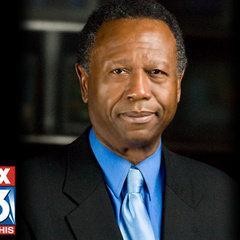There are dead and dying black people everywhere.
I haven’t logged on to Facebook in two weeks, partly because people talk too damn much, partly because I don’t want to watch endlessly looped videos of black and brown people’s slaughter and share sadface emojis because I don’t have any more meaningful words about their deaths.
Words are data-mined and used in targeted ads: Quality proofreading services, Marvel’s Defenders series, black and brown people vomiting blood from gunshot wounds in 4k resolution on your screen — aren’t these new phones amazing? Look at that quality; you can see each individual shudder in that death rattle. Check out these suggested videos. Repeat, repeat, repeat. Cry.

I love Memphis, but does Memphis love me?
Last night, I was driving home from dinner in my mom’s car. My neighborhood is belted by extreme affluence on one end and extreme poverty on the other. I live squarely in the middle, in the liminal space, which is lowkey my existence because I’m the kind of millennial that people aren’t talking about when they talk about millennials. Charleena Lyles was a millennial, too. I wonder if her love of avocado toast is to blame for our failing economy. I wonder how many degrees of separation there are between avocado toast and her murder. There are dead and dying black people everywhere.
I was driving my mom’s car last night to get dinner for my family. My route is always the same when I’m heading west toward home: turn on the rich people’s street to get to the street designated for the not-rich black people, most of whom are dying from incarceration, from poverty, from generations of advancing bare centimeters and you all should be grateful, we could just wall off your part of the neighborhood and leave you in Memphadishu, dude, but I’m cool, bro, so here, have a swig of my 201 Hoplar what do you mean you don’t like IPAs? I don’t even know who Duanna Johnson is, dude. Forget it, we’re building the wall, don’t say we never tried to give you anything.
The rich people’s street on my side of the ‘hood has 24-hour security patrols. The rich people’s street on the other side of the ‘hood has 24 hour security patrols and those police blue eyes in the sky that are possibly the blue eyes of the precogs rifling through our black minds for prethoughtcrimes against the white supremacist order, the better to justify our murders. Data-driven probable cause, but all the artificial intelligence is racist.
My route is always the same. I turn on the rich people’s street to get to my street. As I am sitting in the lane to turn on the rich people’s street, a blue eye — a blue life? — pulls up short, creeps behind me as I am sitting in my mom’s car, a bag of food in my wife’s lap. The other blue eye winks from across the street, as if to say to the blue life behind me, “Do what you gotta do. Fear for your life if you need to.”
Thankfully, my child hasn’t been born, so they won’t have to see my black life taken by this blue life. All I’ve done is buy dinner. I have guacamole in the bag. How many avocadoes is my black life worth? I contemplate having my wife turn on Facebook Live — if I go, I’m going out in 4k. But we’re working-class blacks and we can’t afford 4k tech on a writer’s salary, so I don’t bother. I haven’t committed a crime, but neither did Philando or Sandra or Tamir or Darrius or eight-year-old Aiyana or Laquan or anyone else on this charnel house list that started, really, in 1619. There are dead and dying black people everywhere. Listen to the high definition sound quality of those rattling chains.
That winking blue eye followed me through my dreams. On my way to work, I pass two signs: “I <3 Memphis” and “Memphis Loves Everybody.” Let’s do the math: One of those is true; the other is bullshit. Memphis don’t love me. Memphis loves those other millennials, the ones who think quality avocado toast goes well with craft IPAs. Memphis don’t love me. Memphis glares at me suspiciously in its tourist sandals while I’m going to pick up my slices from Memphis Pizza Cafe, even though I’ve been going there since I was 16 and the millennials Memphis loves just got here last year. Memphis loves grit and grind. Memphis loves urban displacement, platitudes, preserving historic standards, saving the Greensward. Memphis loves being number 3 on the Best New Mid-Sized Cities for Millennial Homebuyers list. Memphis loves progress as long as it comes with a shaggy surfer haircut, a pantsuit, a startup with a Grizzlies blue-and-gold material UI logo, a digital rendering of a pistol, and an insensitive ironic slogan because that’s the new Memphis, man. Memphis loves not loving me and people like me.
I finally log on to Facebook. People are still talking. Dana Loesch is in an NRA ad calling for people to take up arms and defend America in its noble struggle against its oppressed. City, county, and state politicians are still debating whether it’s more economically viable to smother us slowly or to bleed us out with a single bullet. The Commercial Appeal is “exploring” Memphis’ problem with gun violence. A blue life creeps by, armed and armored in the same kind of van that Freddie Gray was killed in. Memphis loves Everybody. There are dead and dying black people all over this city. I love Memphis.
Troy L. Wiggins is a Memphis writer whose work has appeared in the Memphis Noir anthology, Make Memphis, and The Memphis Flyer.

